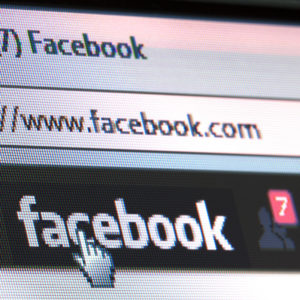The Guardian published an explosive article last month on how social media can “hijack” our minds and control us through its technology, but one of the social media experts interviewed by the Guardian disagreed with the article’s main points and said that we have more control over our social media habits than the Guardian report suggests.
Paul Lewis in his article poses slightly leading questions like “If the people who built these technologies are taking such radical steps to wean themselves free (from social media), can the rest of us reasonably be expected to exercise our free will?” and quotes a former Google employee, Tristan Harris saying, “All of our minds can be hijacked. Our choices are not as free as we think they are.”
Nir Eyal, who Lewis talked to for his article, is an expert on habit formation; he spent several years consulting for the tech industry and is the author of Hooked: How to Build Habit-Forming Products. Eyal developed his social media teaching techniques by carefully following how Silicon Valley giants like Facebook, Instagram, and Twitter operate. He writes and teaches about the intersection of psychology, technology, and business.
In regards to the negative impact that social media can have on our minds, Eyal told InsideSources that “every new technology that has existed throughout history has gone through a euphoric phase and then we find problems and flaws with it.”
Eyal argued that just because we start to see some bad aspects of a technology – like we did in the past with bicycles, trains, factories, computers, or phones – “doesn’t mean we don’t use it all together, doesn’t mean its sinister. In this case it means (social media) it’s so good that we want to use it too much and have to learn how to put it away sometimes. And today lots of tools exist online to help us disconnect.”
According to Eyal, Lewis’ assertion that most people are addicted to and controlled by social media is “quite dangerous,” he said.
“For most people, the vast majority of people, social media is not an addiction and in fact calling it an addiction is quite dangerous.”
In fact, Eyal found great irony in the Guardian article because he said media and news organization were the “attention merchants” before social media came around. More importantly the Guardian itself has published writing, which touts and promotes Eyal’s allegedly habit-forming social media tactics.
“The Guardian in fact uses my techniques, I told Paul you guys are verbatim using what I teach in my book (‘Hooked: How to Build Habit-Forming Products’)”
Eyal said addiction is defined as a harmful dependency on a behavior or substance but that unlike other vices, addiction also suggests self-inflicted harm.
“Simply doing something a lot, like checking Facebook or watching television, wouldn’t qualify as addiction unless the user has difficulty stopping the activity even though it harms them,” Eyal wrote in the Atlantic last year.
The Guardian articles’ thesis that we’re addicted to social media and that we’re being coerced and coaxed into using it does humanity a disservice, according to Eyal.
“If we say we’re all getting addicted, then you eat the Oreos, watch Game of Thrones, click away on Facebook — you’re resigned to it, but that’s just not true. The worst thing is to believe you don’t have control.”
However Eyal is self-aware and experienced enough to recognize that social media websites can have their pitfalls and that the companies themselves should take some responsibility for them.
“I encourage people to uninstall these products, if they don’t benefit your life. I’m just as much of an advocate for breaking habits as I am for building habits… and I think companies do have a moral responsibility to better identify people who want to stop using their product. That’s when an ethical line is crossed.”
Other Silicon Valley honchos have also been sounding the alarm recently on social media sites and their potential psychological dangers.
In an interview with Axios last week, Sean Parker, the billionaire investor and founding president of Facebook said that Facebook and others consciously hook us to their platforms and this could be hurting our brains.
“The thought process that went into building these applications, Facebook being the first of them, … was all about: ‘How do we consume as much of your time and conscious attention as possible? It’s a social-validation feedback loop … exactly the kind of thing that a hacker like myself would come up with, because you’re exploiting a vulnerability in human psychology,” Parker said.
Parker who says he’s become “something of a conscientious objector” of social media said that the founders of Facebook, Instagram and others understood the psychologically exploitive nature of their products and “did it anyway.”
Although the science is still not definitive on the actual impact of social media websites on our brains, the concerns raised recently do perhaps beg the question of whether there’s a larger role for the government to play in potentially regulating social media companies.
Eyal said clearly that that while social media companies should not be regulated for being “too engaging or addictive” he did suggest that the same rules and regulations that apply to television and print advertisements be applied to online ads, particularly regarding political messages.
That’s exactly what legislation proposed a few weeks ago by Democratic Senators Mark Warner of Virginia and Amy Klobuchar of Minnesota hopes to achieve. Called the ‘Honest Ads Act,’ it would require social media companies like Facebook and Twitter to keep public records of election ads and meet the same disclaimer requirements as advertisements on TV, radio and in print.
Additionally both Facebook and Twitter have already said they will give more information to the public about political ads that run on their platforms, including who is funding them, according to the Associated Press.

